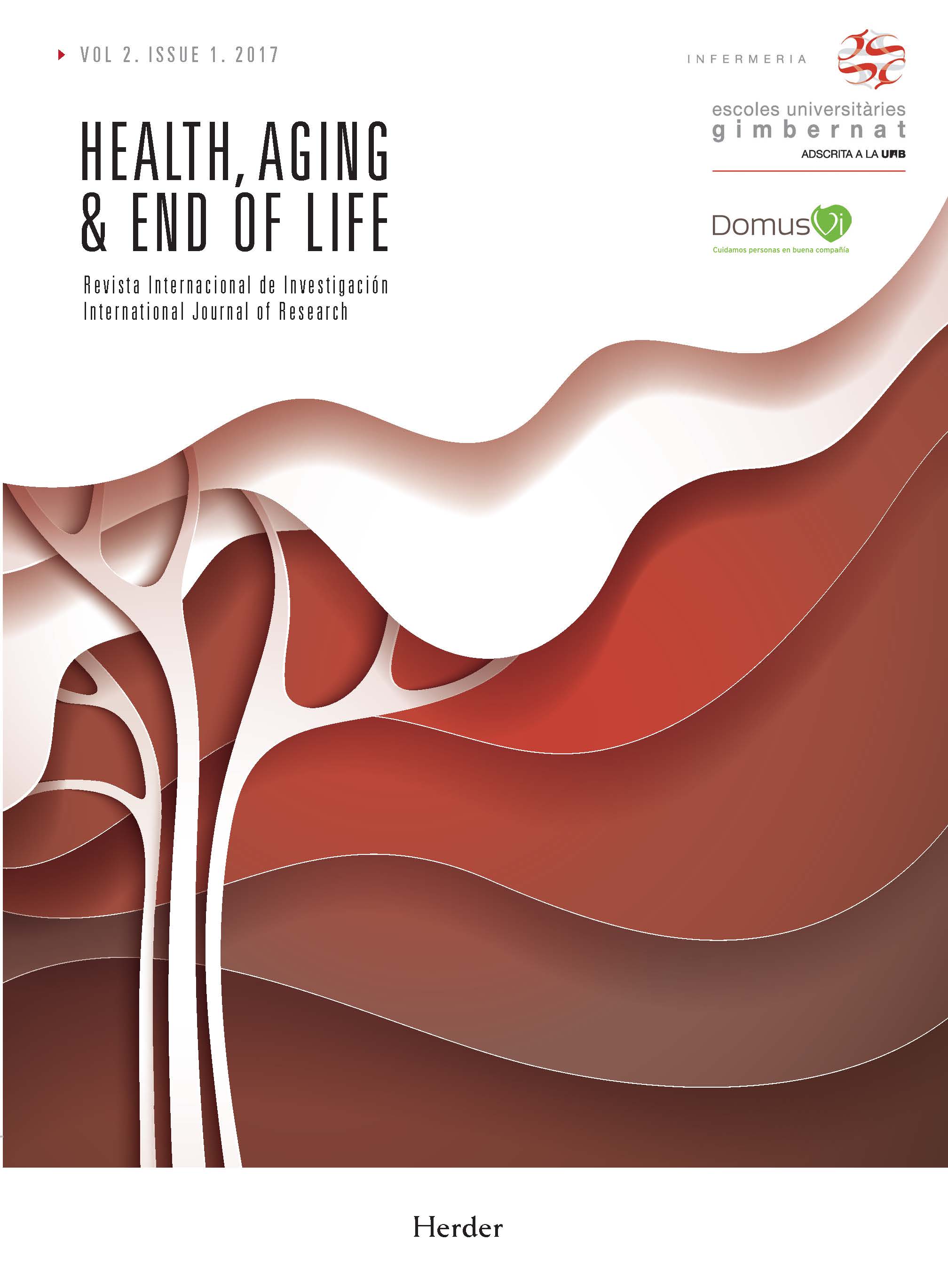Abstract
Introduction: The way of aging is determined by the joint action of multiple factors and it is not the same for men than for women. In the present study, raised from the gender perspective, it has been considered important to approach, from a subjective experience, the aging process of women and one of the dimensions that sets it such as the retirement.
Within the health system, women suffer from invisibility once their reproductive stage is finalised. If experiences, feelings and needs of women are identified during the process of retirement, this would allow them to age in a healthier way.
Objectives: to contribute knowledge to the process of retirement in women who have developed their working life in an urban environment (the city of Barcelona), and to do so by showing what their expectations were and how their adaptation is taking place in this new chapter of their life.
Methodology: the study was made with a qualitative and descriptive phenomenological approach. For data collection, a focus group technique was chosen, two large groups of women participated on it: those who had worked as qualified personnel and the ones who had done so as non-qualified personnel. While researching, Meleis’ Theory of Transitions was used as reference to analyse the content of the different stories.
Results and conclusions: the stories showed different experiences, between the two different groups, in the way of anticipating or facing retirement and how to adapt to it. Depending on the way they adjust it to this stage, a different and healthier transition came out as consequence.
References
Alligood, R.A. y Marriner, A. (2011). Modelos y teorías en enfermería. Barcelona: Elsevier.
Aymerich, M., Planes, M. y Gras, M.E. (2010). La adaptación a la jubilación y sus fases. Afectación de los niveles de satisfacción y duración del proceso adaptativo. Anales de psicología, 26(1), 80-88.
Barrio-Cantalejo, I. y Simón-Lorda, P. (2006). Problemas éticos de la investigación cualitativa. Medicina Clínica, 126(11), 418–423.
Consejo Internacional de Enfermería. (2006). Declaración de posición: La atención de enfermería a las personas mayores. Disponible en: http://www. icn.ch/es/publications/position-statements/
Chulian, A. y Garrido, M. (2015). Manual de preparación a la jubilación positiva. Madrid: Fundación Desarrollo y Asistencia.
De la Cuesta, C. (2006). Naturaleza de la investigación cualitativa y su contribución a la práctica de Enfermería. Metas de Enfermería, 9(5), 50-55.
Forteza, J.A. (1990). La preparación para el retiro. Anales de Psicología, 6(2), 101-114.
Freixas, A. (2008). Dones i envelliment: apunts per a una agenda. Revista CIDOB d’Afers Internacionals, 82(1), 36-39.
Fundació Institut Català d’Envelliment. (2004). Anuari d’envelliment de Catalunya. Disponible en: www.envelliment.org/documents/docs/ Anuari2004cat.pdf.
Generalitat de Catalunya Departament de Benestar Social. (2002). Llibre Blanc de la gent gran activa. El paper actiu de la gent gran en la nova societat: 50 propostes de millora i 14 recomanacions. Barcelona: Generalitat de Catalunya.
Instituto Nacional de Estadística. (2017). Clasificación Nacional de Ocupaciones. CNO. Disponible en: www.ine.es.
Jahoda, M. (1987). Empleo y desempleo: un análisis socio-psicológico. Madrid: Morata.
Kornblit, A.L. (2007). Metodologías cualitativas en Ciencias Sociales: modelos y procedimientos . Buenos Aires: Biblos.
Leturia y Uriarte, A. (1998). Intervención y prevención en los desajustes provocados por el cese de la actividad laboral en desempleados mayores. Revista Española de Geriatría y Gerontología, 33(1), 32-40.
Lher, U. (1995). Psicología de la senectud: Proceso y aprendizaje del envejecimiento. (3 ed.). Barcelona: Herder.
Malla, R. (2006). Pérdida y duelo. En Pinazo, P Martínez, M (Eds.), Gerontología: Actualización, innovación y propuestas). Madrid: Pearson Educación; 565-591.
Meleis, A.I. (2010). Transitions Theory Middle Range and Situations Specific Theories in Nursing Researchand Practice. New York: Springer Publishing Company.
Millán, JC. (2006). Principios de geriatría y gerontología. Madrid: McGraw-Hill Interamericana de España.
Pérez, I. (2004). La relación de ayuda: intervención de enfermería en el proceso del duelo. Enfermeria21, 8(1), Disponible en: http://enfermeria21.com/educare/educare08/ensenando/ensenando3.htm
Stoller, R.J. (1964). A Contribution to the Study of Gender Identity. J. Psycho-Anal, 45, 220-226.

